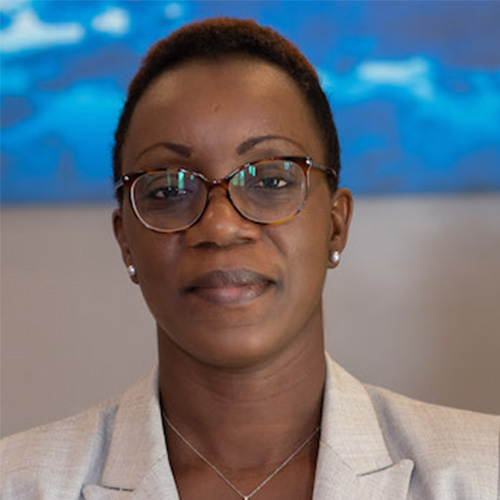
Amin Ariane Manuela
Country (Nationality)
Cote D'ivoire
Grantee Title
Project - Spillover effect of climate change on cattle economy in Côte d'Ivoire
Grantee Description
Amin Ariane Manuela is an assistant Professor in the Faculty of Economics Science and Management, at the Felix Houphouët Boigny University, Côte d’Ivoire. She is also research associate at the Swiss Center for scientific research in Côte d’Ivoire. She completed her PhD at the University of Auvergne in France in 2014 and her research work was titled “Essays on development and biodiversity conservation in Sub-Saharan Africa”.
Amin has been working at the interface of environmental and economic development problematics since 2006. Her research seeks to address challenging development issues,seeking to tackle challenges brought about by the acceleration of economic growth, social development and environmental issues in developing countries. She is currently co-supervising a research group of 40 researchers and is in charge specifically of developing and coordinate research activities in the field of “environmental economics and local economic development“ at the Swiss Centre for Scientific Research in Côte d’Ivoire. Ariane has presented her research findings at several conferences and workshops and published peer-reviewed articles in reputable academic journals.
Project - Spillover effect of climate change on cattle economy in Côte d'Ivoire
Perfect information is essential for efficiency in resource allocation, making informed choices and full employment of resources. However, little has been done to supply decision-makers with contextual-based and evidence-based information to enhance decision making to tackle climate change impacts on regional economy of cattle in Western Africa. The proposed research project aims to fill this gap and investigate the climate risk for cattle trade flows between Côte d'Ivoire and Sahelian countries and assess the cost of inaction i.e. the climate change impacts on the development of this regional economic sector.Specifically, we will (i) capture and model for Côte d’Ivoire the patterns of live bovine animals procurement systems and mechanisms from Sahelian countries, (ii) explore plausible future with related indicators and estimate the impacts and economic costs, induced by climate change scenarios. We will adopt a multi-scale approach combining analysis of data at country level and primary data collected on the field. The study will enable Côte d’Ivoire to anticipate climate risks on food security. At the regional level, climate change mitigation actions may be assessed based on cost of potential damages. Anticipating the climate risk for the development of this sector will also contribute to strengthening regional economic integration.
